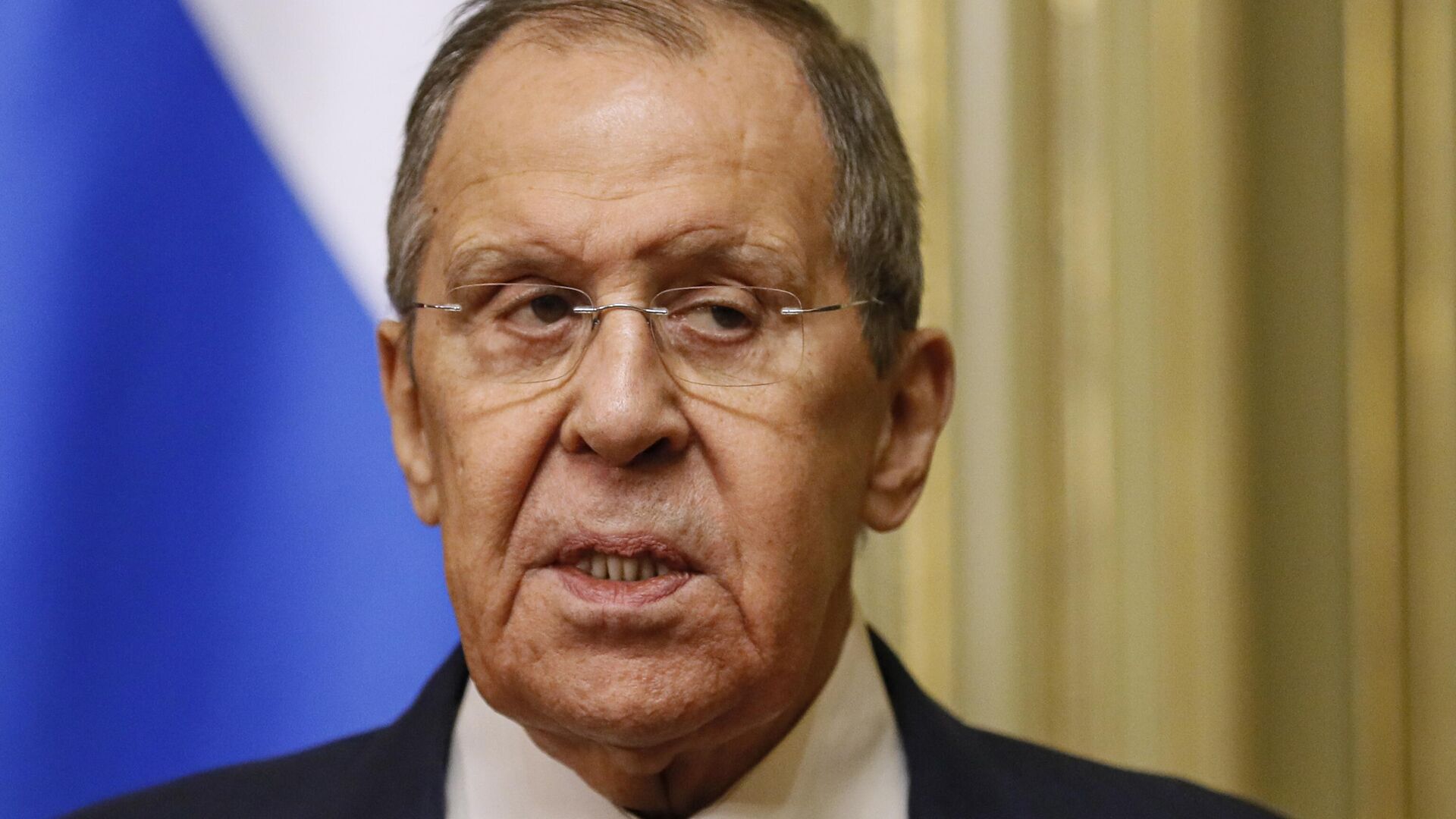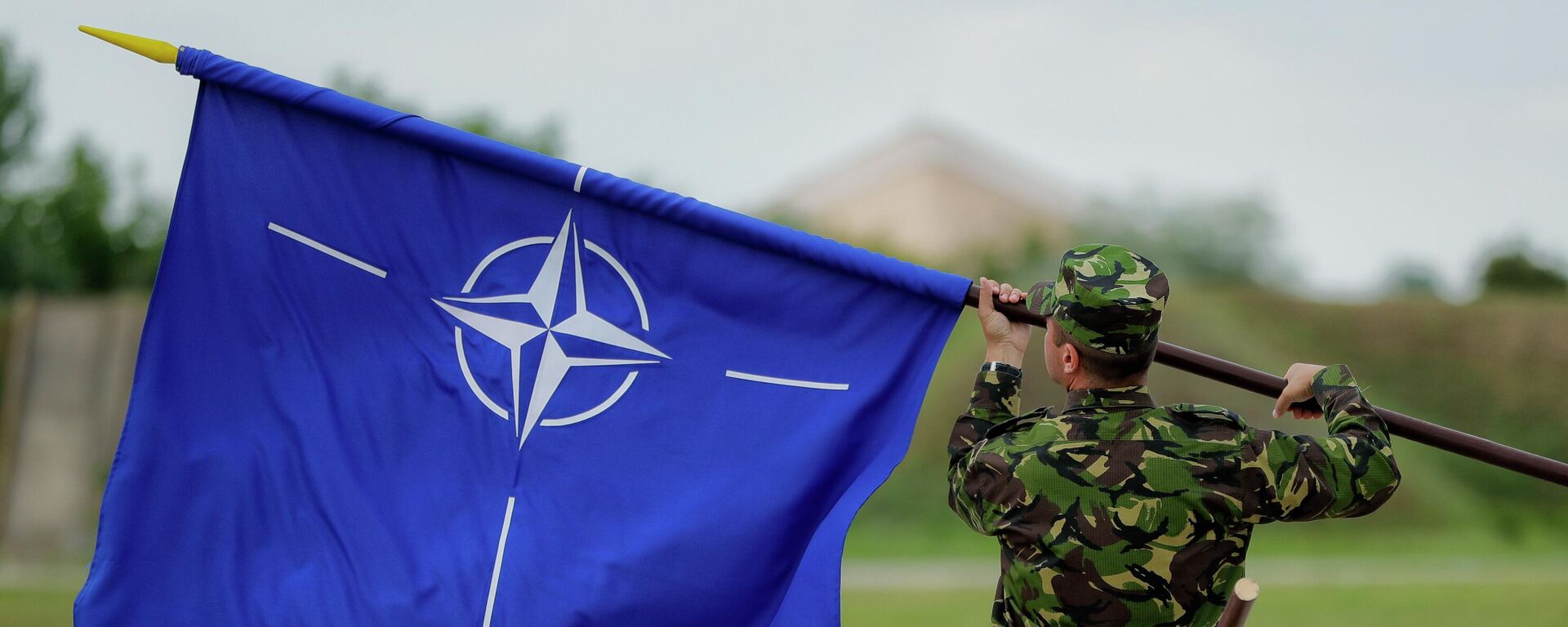https://en.sputniknews.africa/20240426/majority-of-global-south-states-understand-threats-posed-by-nato-lavrov-says-1066251209.html
Majority of Global South States Understand Threats Posed by NATO, Lavrov Says
Majority of Global South States Understand Threats Posed by NATO, Lavrov Says
Sputnik Africa
MOSCOW (Sputnik) - In April, US President Joe Biden and Japanese Prime Minister Fumio Kishida said in a joint statement they were looking forward to continuing... 26.04.2024, Sputnik Africa
2024-04-26T15:59+0200
2024-04-26T15:59+0200
2024-04-26T15:59+0200
sergey lavrov
joe biden
fumio kishida
japan
asia
united states (us)
north atlantic treaty organization (nato)
russian foreign ministry
international
bolivia
https://cdn1.img.sputniknews.africa/img/07e8/04/1a/1066251348_0:160:3072:1888_1920x0_80_0_0_a63e8cf053a5f9f99ff855c9201e16aa.jpg
The majority of the Global South states are aware of the potential threats posed by NATO, as the organization continues to build up its infrastructure in the Asia-Pacific region, Russian Foreign Minister Sergey Lavrov said on Friday. As an example, Lavrov recalled the recent announcement of the NATO-Japan cooperation agreement. The minister said it was much better to take care of one's "household chores" and provide normal education for one's citizens, instead of "playing this geopolitical game, which NATO sees as a zero-sum game." Earlier in the week, the Russian Foreign Ministry announced talks between the top Russian and Bolivian diplomats, saying they were to discuss various aspects of Russian-Bolivian cooperation, including the prospects of Bolivia joining BRICS. The diplomats are also expected to touch upon a wide range of topical issues on the international and regional agenda.
https://en.sputniknews.africa/20240424/nato-maneuvers-near-russian-borders-raise-risks-of-possible-military-incidents-zakharova-says-1066206939.html
japan
asia
united states (us)
bolivia
Sputnik Africa
feedback@sputniknews.com
+74956456601
MIA „Rossiya Segodnya“
2024
Sputnik Africa
feedback@sputniknews.com
+74956456601
MIA „Rossiya Segodnya“
News
en_EN
Sputnik Africa
feedback@sputniknews.com
+74956456601
MIA „Rossiya Segodnya“
Sputnik Africa
feedback@sputniknews.com
+74956456601
MIA „Rossiya Segodnya“
sergey lavrov, joe biden, fumio kishida, japan, asia, united states (us), north atlantic treaty organization (nato), russian foreign ministry, international, bolivia, foreign ministry, foreign policy
sergey lavrov, joe biden, fumio kishida, japan, asia, united states (us), north atlantic treaty organization (nato), russian foreign ministry, international, bolivia, foreign ministry, foreign policy
Majority of Global South States Understand Threats Posed by NATO, Lavrov Says
MOSCOW (Sputnik) - In April, US President Joe Biden and Japanese Prime Minister Fumio Kishida said in a joint statement they were looking forward to continuing to work on enhancing the partnership between NATO and Tokyo, and the cooperation between the alliance and the Indo-Pacific Four, which includes Australia, Japan, New Zealand and South Korea.
The majority of the Global South states are aware of the potential threats posed by
NATO, as the organization continues to build up its infrastructure in the Asia-Pacific region, Russian Foreign Minister Sergey Lavrov said on Friday.
"Structures are already being created there [in the Asia-Pacific region] that reproduce the NATO psychology, NATO mentality. There are talks of NATO infrastructure penetrating there," Lavron told a joint press conference after a meeting with Bolivian Foreign Minister Celinda Sosa Lunda in Moscow, in response to a question from a Sputnik correspondent.
As an example, Lavrov recalled the recent announcement of the NATO-Japan
cooperation agreement.
"It seems to me that the overwhelming majority of countries in the world's majority regions, the Global South, understand the dangers this entails, realize that they will be siphoned off funds in the interests of NATO and will use them," the top Russian diplomat said.
The minister said it was much better to take care of one's "household chores" and provide normal education for one's citizens, instead of "playing this
geopolitical game, which NATO sees as a zero-sum game."
Earlier in the week, the Russian Foreign Ministry announced talks between the top Russian and Bolivian diplomats, saying they were to discuss various aspects of Russian-Bolivian cooperation, including the prospects of Bolivia joining BRICS. The diplomats are also expected to touch upon a wide range of topical issues on the international and regional agenda.


